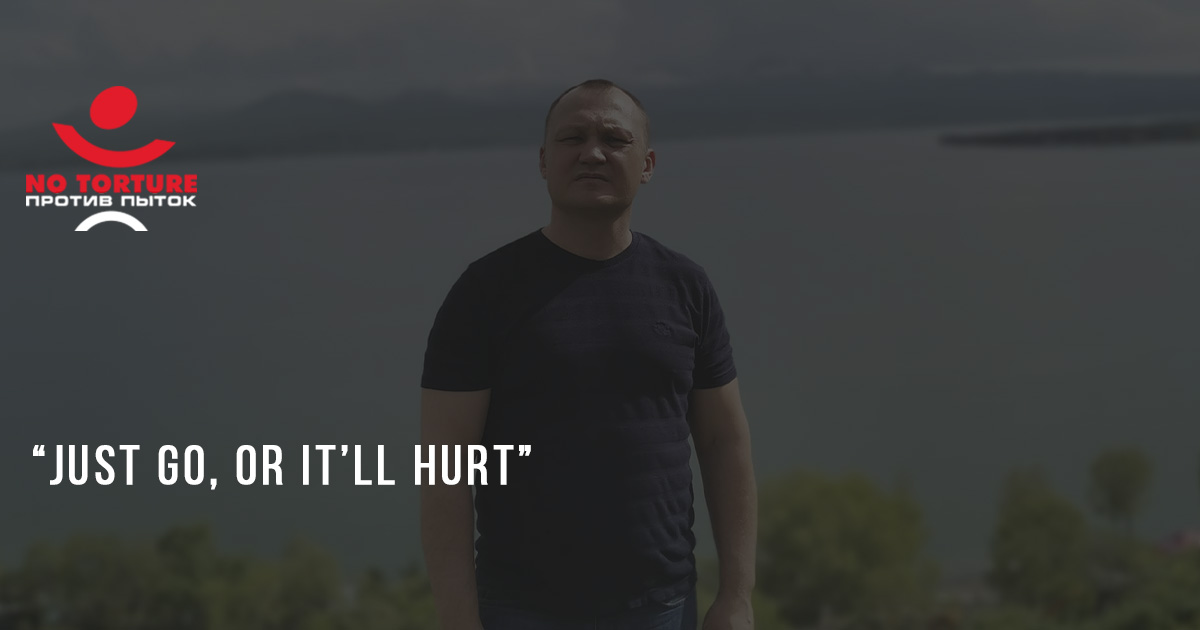On 20 September 2021, the Leninsky court of Orenburg awarded 5 thousand rubles of compensation to lawyer with the Committee Against Torture Timur Rakhmatulin. During the rally which took place on 31 January in Orenburg, two persons in civilian clothes apprehended Rakhmatulin and developed a report on a failure to obey the police officers, after that the lawyer spent two days at the detention room. The court did not identify any violations in Rakhmatulin’s actions and released him, and, after Timur’s lawsuit against the police officers, awarded him a compensation – though 80 times smaller than he claimed. At the local Ministry of the Interior stated that they did not know “the persons in civilian clothes” who apprehended Rakhmatulin.
“Kommersant” article “Compensation due to apprehension” on Timur Rakhmatulin’s case:
Lawyer with the Orenburg branch of non-governmental organization “The Committee Against Torture” Timur Rakhmatulin was apprehended on 31 January – on the day, when non-authorized rallies took place in a number of Russian cities in support of Aleksey Navalny. At that time, lawyers of “OVD-Info” project counted 5754 apprehended, and many of them stated in court that they considered the police officers’ actions to be unacceptable. In Orenburg, there were 12 apprehensions, according to the “OVD-Info” portal, local media reported 16 apprehensions. “I made a video of two men taking away a young person who was demanding that they at least introduced themselves, — Mr Rakhmatulin told “Kommersant”. — At first I was filming from the back and sideways, then I ran around them in front and started to ask them who they were”. Two more people in civilian clothes apprehended the lawyer himself.
No claims were made. To the question who they were, one of them answered curtly: “Just go, or it’ll hurt”, — explained Mr Rakhmatulin in court later on.
The lawyer was pushed in the police van, where other “people in civilian uniforms” examined him, seized his mobile phone and a passport, refused to let him call his relatives and took him to the police department. His lawyer was not allowed to contact him. Eight hours later, a protocol on a failure to obey the police officers (Article 19.3 of the Administrative Offences Code of the Russian Federation) was drawn up, and the man was taken to a detention room to wait for the court ruling. On 2 February, the Leninsky Court of Orenburg started to examine the case. During the hearing, Mr Rakhmatulin’s lawyer, Dmitry Dmitriyev claimed there were inconsistencies in the apprehension documents – for example, in the protocol, which the police gave to Mr Rakhmatulin, the time of apprehension was indicated as 21:56, and in the copy, provided to the court by the officers with the Ministry of the Interior — 13:00. The location of the man’s apprehension also changed – from Pushkinskaya street to Sovetskaya street. The police officer could not explain these corrections, and, as a result, the court “did not find confirmations of the administrative violation”.
Timur Rakhmatulin considered all that happened to him to be a reason for filing a claim against the Ministry of the Interior, in which he listed all violations of his rights on 13 sheets, having referred to the Constitution of Russia and the European Convention of Human Rights. Rakhmatulin demanded a compensation in the amount of 400 thousand rubles for illegal apprehension, incarceration, applying force and procedural violations during apprehension, personal search and documents development.
The claim was examined by the same Leninsky District Court. The Ministry of the Interior’s position changed compared to the first trial: this time, the Ministry lawyers claimed that they did not know the people in civilian clothes who conducted the apprehension. However, the court once again sided with Timur Rakhmatulin and awarded him a compensation, though 80 times smaller than the lawyer expected: only 5 thousand rubles. In the resolution part of the court ruling it is not specified which specific violations the court deemed proven and for what exactly the court awarded the compensation.
This sum of money is a real trolling by the state, — Mr Rakhmatulin thinks. — It could not close its eyes to the appalling police violations, but it failed to adequately evaluate them, either. I will definitely appeal against this ruling”.
Mr Rakhmatulin is aware of only two similar court rulings after the winter rallies: in the first case, the Orenburg court acknowledged the violations by the Ministry of the Interior, but did not award any compensation, in the second one – the Saint-Petersburg court acknowledged the violations and awarded a compensation of 20 thousand rubles.
In the opinion of managing partner of human rights project “Apology of protest” lawyer Aleksandr Peredruk, there is a persisting tendency in Russia to award inadequate compensations for illegal apprehensions. Such compensations may vary from 3 thousand to 50 thousand rubles, but, as a rule, they amount to about 10 thousand rubles for apprehensions lasting one or two days. Mr Peredruk emphasizes that submitting lawsuits against the Ministry of the Interior is only possible in case when the administrative case initiated against the protester himself is dismissed. Mr Peredruk found it difficult to quantify the percentage of such outcomes, however, he pointed out that they are significantly less than the cases resulted in arrests or fines.
It is worth mentioning that, as a rule, it takes several years for the ECHR to examine such lawsuits. For example, one of the most high-profile rulings of the European Court regarding such an application, was awarding a compensation to Igor Kalyapin, head of the Committee Against Torture, a member of the Presidential Council for Human Rights in 2019. He was apprehended at the March of the Discontented in 2007 and only 12 years later he managed to ensure the compensation in the amount of €1 thousand at the ECHR.
